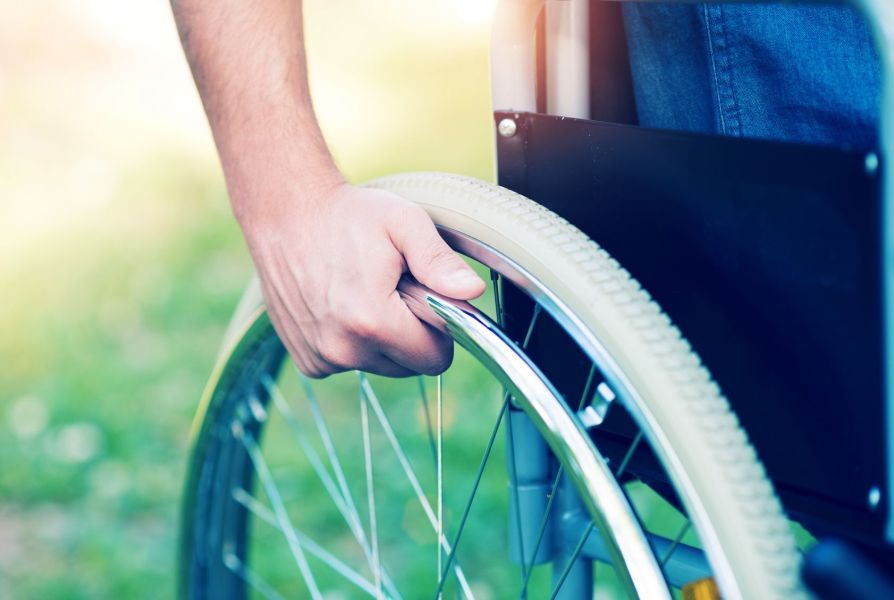Approved projects in the “Increasing resilience in crises and disasters” field
Funding is provided for joint security research projects in the field of “Civil security – Increasing resilience in crises and disasters” that will improve emergency services’ and the public’s resilience through innovative solutions and strategies. The aim of these projects is to increase resilience and thus to improve capacity to prepare for crisis and disaster scenarios, to do everything possible to prevent them occurring, to recover quickly from any potential damage and to incorporate the lessons learned into future preparations.

Completed joint projects:
KIRMin: Critical infrastructure – Resilience as a minimum supply strategy

Funding codes 13N13989 to 13N13993
Most critical infrastructures are dependent on other critical infrastructures, one example being electricity and water supply. In the event of a failure affecting a large area, those dependencies can have disastrous effects. KIRMin was analysing the dependencies between Germany’s utility networks with the aim of enabling operators of critical infrastructure to make the necessary technical and organisational preparations to be able to respond to a crisis more effectively and return operations to normal more quickly.
KOPHIS: Support for the social environment of persons requiring care and assistance

Funding codes 13N13869 to 13N13873
Demographic development has led to a constant rise in the number of people in our society who require care and assistance. Many of them are looked after by relatives or nurses at home. In the event of extreme weather or other disasters, there is a risk that these people might not receive the necessary care because, for example, their nurses cannot reach them. In these situations, or if evacuation becomes necessary, emergency services have to determine which people nearby need help and who can help with the evacuation or provision of care. This project therefore seeks to establish and strengthen networks of authorities, care infrastructures, relatives and active civil society players. To this end, it was working on identifying the needs of the recipients and givers of care and assistance and drawing up support strategies and information material.
More information (only available in German)
KUBAS: Coordination of voluntary helpers to overcome disaster situations

Funding codes 13N13939, 13N13941, 13N13942 and 13N14027
After extreme weather events, the professional emergency services are usually supported by thousands of voluntary helpers in the clear-up effort. However, the volunteers’ activities need to be coordinated and organised. The KUBAS project has therefore carry out research on a software solution to help the disaster management authorities register, locate and alert volunteer helpers.
KUBAS project outline (PDF, only available in German)
REBEKA: Resilience of emergency service professionals affected by crisis situations

Funding codes 13N13904 to 13N13908
A large share of the people involved in civil protection and disaster management in Germany are volunteers. The BMBF research project REBEKA aimed to investigate and strengthen the resilience of disaster management organisations, based on the crisis scenarios of flooding and a power failure. One key area of the research was an analysis of what happens when the emergency services themselves are affected. A parallel examination of the organisational, social and psychological aspects was also being carried out. The findings would be used to devise structures and processes that will enable, in particular, ad hoc helpers to be integrated into the crisis response measures in an effective manner.
RESIBES: Resilience through networks of spontaneous volunteers for emergency and crisis response

Funding codes 13N13955 to 13N13957
In particular, the storms and flooding of recent years have shown that the public are increasingly willing to help respond to crises and disasters. It is precisely that willingness that poses a challenge for incident commanders since the volunteers’ work has to be coordinated too. RESIBES was creating a helper network that can be activated quickly in the event of a crisis or disaster and engaged in a coordinated response. Private individuals, business and associations can register as active or passive network members. When a crisis occurs, the emergency services can then issue targeted requests to the helper network.
SiME: Safety for people with physical, mental or age-related disabilities

Funding codes 13N13946 to 13N13951
Thanks to comprehensive inclusion efforts, people with sensory or mobility impairments are increasingly able to enjoy equal participation in life in society. In emergency situations, however, this poses new challenges for the emergency services because many of these people are not able to rescue themselves or to recognise the danger of the situation. This project therefore aimed to examine the movement patterns and self-rescue abilities of different groups. The findings would be used, amongst other things, to help improve the design of evacuation routes in public buildings and homes for people with disabilities.
More information (only available in German)
TEAMWORK: Crisis simulation for collaboration between emergency services and the public

Funding codes 13N13932 to 13N13937
The River Elbe and River Saale floods are examples of complex crises in which a wide variety of emergency services worked together. Around 1.7 million helpers volunteered during the most recent extreme flooding, underlining the special role played by the public in these situations. The TEAMWORK project was looking to develop a software-based training system for disaster management personnel and volunteer helpers. It would then be made available to emergency services and volunteers so that they can practise working together to respond to unfamiliar crises.
More information (only available in German)